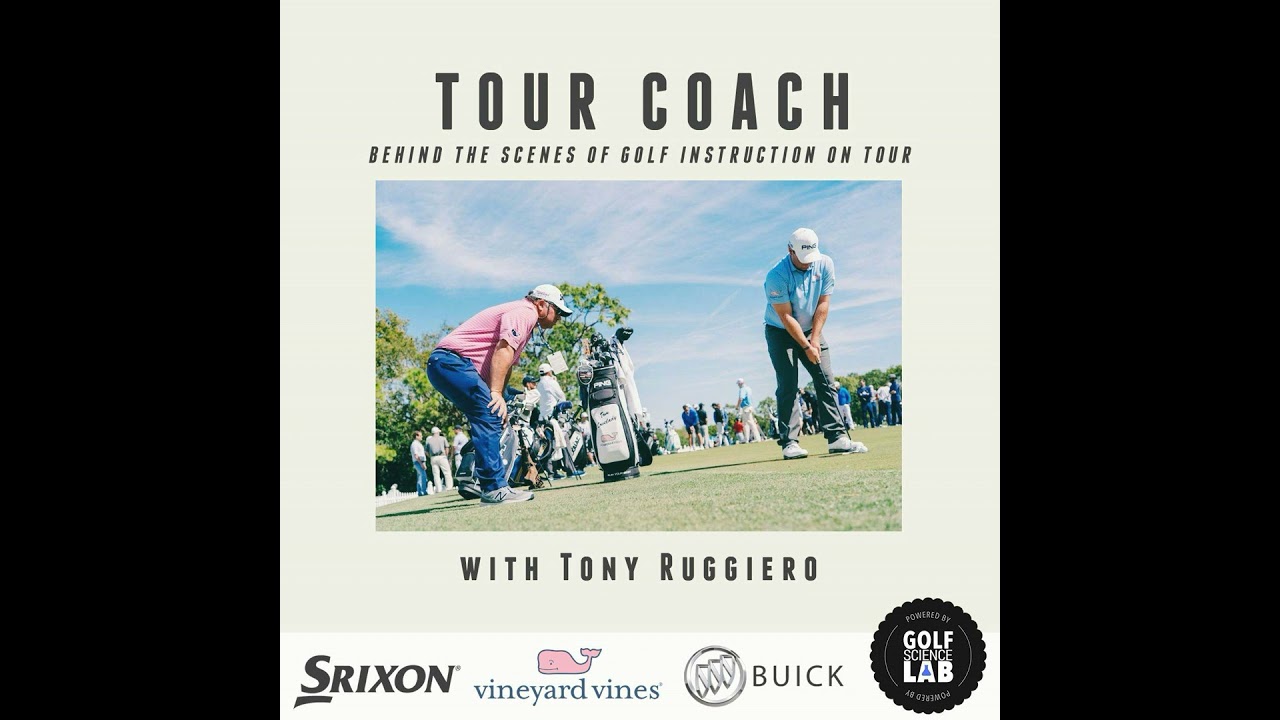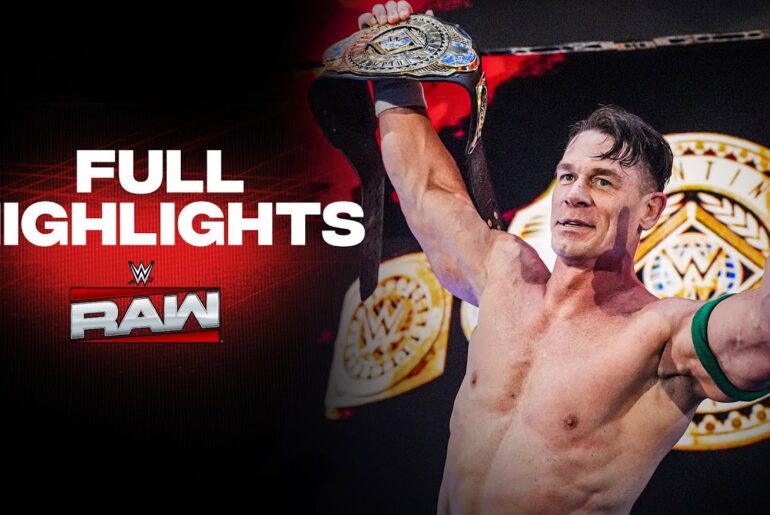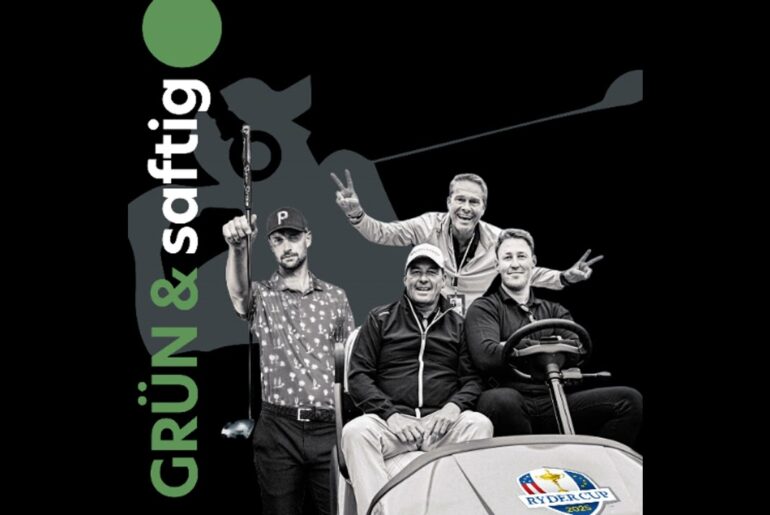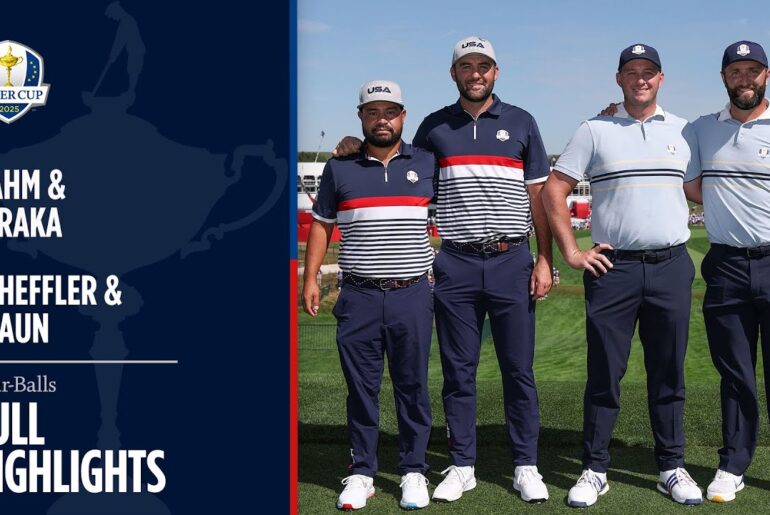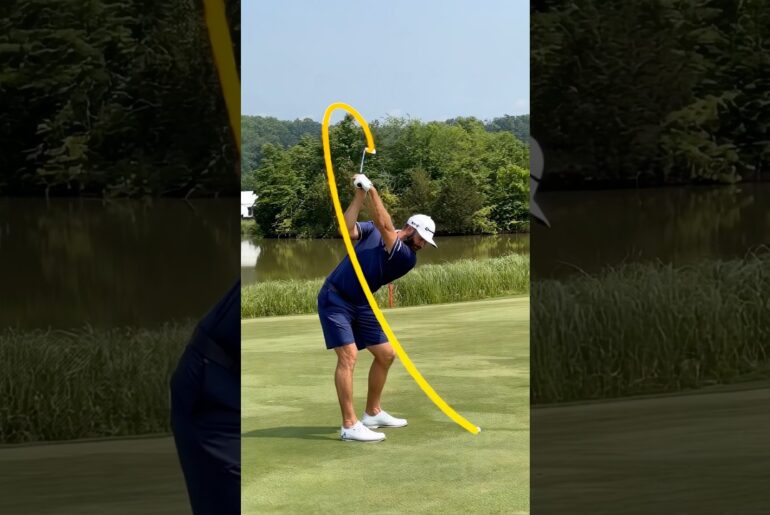Heading into Q School, Tony sits down with Rick Lamb and Emilio Gonzalez to talk about their mentality, process to getting where they are, what they’ve been doing to prepare and how that changes as they get closer. They also offer advice to younger golfers they learned from their own mistakes, other golfers and offer an inside look into what it takes to be compete at the optimum level.
Learn more about your ad choices. Visit megaphone.fm/adchoices (https://megaphone.fm/adchoices)
[Music] Hi, this is Tony Rogerro. Thanks for listening to the tour coach. These are the players, coaches, experts, stories, and insights from my work on the PGA tour at my retreats or my downtown teaching center in Mobile, Alabama. My goal is to shed light and share insights from the people who I’ve gotten to know and meet working on the PGA Tour and teaching through my career. And I hope this helps all of us play, coach, and teach better golf. If you like what you hear, please give us a good review and take a look at our new Deceer on Instagram where I’ve taken some time to share videos and help from my teachings, travels, and journeys. [Music] So, here we are, tour coach, sitting with my boys, Alio Gonzalez, Rick Lamb, BDR, after a couple days of work here at TPC getting ready for Q school. I’m going to start with you, Rick. So, been kind of a weird year with all the, you know, co and the long year and a lot of times when a guy goes back to Q school, I always don’t feel like we’ve done a good job, but I feel like your game’s in a really good spot and like you played pretty nice at the US Open. How would you evaluate the last year and where you are right now? Yeah, I mean there’s been a lot of positives to take out of this year. just I didn’t really have the consistency that I would have wanted to to to be able to keep my card. But there’s a lot of played a lot of good rounds, shot a lot of low scores, but just never really put four rounds together. But obviously the a lot of really good first two days or first days especially I mean I can there were a number of days after first day you were in top three for one tournament shot 9 under the first round and then kind of stalled out the next three but like the US Open was great and then there’s a lot of a lot of final rounds where I’d shoot like even or one under and on that tour you just kind of get lapped when you do that. So, which is the opposite of PGA Tour. You go shoot one, two under last day, you could move up in some position, right? Yeah. Um, so how do you approach going back to Q school next week? What’s your thought process? How do you get ready for it? I mean, I think for I mean, I’ve got a week until the tournament starts, so I think right now it’s all about just getting rest. I’ve been doing all the work for the last month or so just getting in the gym and playing a lot of golf and playing a couple mini tour events and a couple proams just to try to get under the gun a little bit and play some competition but just feel like my game’s ready and it’s just a matter of mentally getting ready for the challenges of Q school. Milio, so this is your first real run at Q school. Little different scenario. How do you evaluate last year? He didn’t have status. Earned status on Latin America. Had some really good, you know, had some good playing out there. Really had some good finishes and also had some real good starts where didn’t finish it as good, but you overall been playing nice. One first stage at Q school at your site. How do you evaluate the year you’ve had and where you are now as a player? And how different are you from where you were like 2 years ago when you came over here? Well, I’ve been really fortunate of being surrounded with people that give me a lot of advice and how to take care of everything that just gets you through Q school. Fortunately, I’ve been around people like Rick that give me a lot of really good advice and just to I mean, make sure that I really embrace and learn as much as I can. You know, at the end of the day, I’m really young and couple years ago, I mean, things haven’t really changed much in my golf swing really. It’s more of like just being mentally prepared and yeah, ready to embrace whatever comes my way, you know, and obviously, yeah, I played really nice in Nebraska, but it’s just a new week coming up. I’m going to California for second stage, and I still got to play really good golf to go and make it through that. So, Oh, yeah. Absolutely. I I think one of the cooler things and I’ve said this before to you guys on podcast. I was watching guys like Rick that have been out there before sharing insight with you, you know, and and listening to you guys talk earlier today. We were over on the range and the putting green was interesting like Rick. So like when when young guys come to you or you’re around young guys and they’re at the start of like we were talking about he doesn’t need need his training wheels on anymore. He’s been out there a little bit, but like what’s your advice for young guys coming up that are starting this process of becoming a professional player? Yeah. I mean, I think a lot of it is you just need to soak in as much information you can from from other players and guys who have who’ve been in your situation before. I mean, there’s in my experience, every time I’ve asked another professional golfer, they’re generally very open and very helpful with and they they’ll tell they’ll tell you honestly where they made their mistakes and what they thought they did well, which I think is an awesome thing about our sport. But, I mean, you got to you got to make the effort to go to go out and find those people. And I mean, people aren’t just going to come up to you and just spill that information. and you got to do your work and go find them and hang around them and just suck as much information as you can from them. So, learning from mistakes is a big thing. If as you look back on it, I mean, you’re not old by any means, but you you’ve been out there a little bit. What are some of the mistakes you’ve learned from? Are the things you take, you go like, I’m not ever going to do that again or you know, I would have done better if I’d have done this. Yeah, I mean, I got my tour card pretty quickly. I after I I turned pro in 2014 and by the end of 2016 I had a PJ tour card. So it was which is hard to do which is so it all kind of happened pretty quick for me and I I think the lesson that I learned is that there’s there’s so many people out there that I mean their intentions are good with trying to give you advice but they just don’t really know what the hell they’re talking about. So, I made the mistake of listening to I mean, I wouldn’t say a mistake, but there’s certain things that I wish I could go back and maybe change the course of a few things, but I feel like I’ve done a few things right. And I mean, it’s there’s never a straight line path to anything. You have your ups and downs and you learn, and it’s just part of life. One of the things I’ve enjoyed about working with you because we’ve been working about two years and Millio I think you see this with him he has a real you have a really good big picture approach like compared to some players you don’t seem to ever overreact or underreact to any tournament you know or around which is I know it’s hard though sometimes in season yeah I I guess that’s from from your I’ve never tried to put any blame on anybody but myself so I think if I do have a reaction it’s all internal and I think that’s where I mean ultimately it’s my job to play golf. It’s I mean you’re trying to do your best to help me and Col’s trying to do his best to help me like there’s nobody that’s I mean I feel like I’ve got an awesome team around me and it’s ultimately my job to perform. So I don’t I would never take that out on you guys but Oh and we appreciate that. Alio, so like talk about the importance of a team like when you came here you came from a small school St. Mary’s where I went. That’s kind of how I found you out there watching. Yeah. And uh I’ve told I’ve told the guys before like I went and spoke to the St. Mary’s team one time and the one guy like you know most college teams especially division 2 they’re good team but you have people paying attention. I mean this kid had like 32 questions written down like he just kept firing questions and I leave and on Instagram messenger I’ve got like another 12 questions he sent me like you know and I was like well this kid wants to be good. Yeah. So, how have you gone through the process of putting a team around you? And how important do you think that is coming from where you came from? Well, yeah. I mean, what you’re saying is totally right. You know, like I just I was a coming out of college, I was a player that I knew that I had a lot of talent, but I need I needed a lot of like help more than anything of how to play golf. And I mean, at the end of the day, it’s really different from moving from college golf to professional golf. and I just didn’t have the the best of amount of guidance to really understand how to get it done, you know. So, I mean, fortunately, I came across you who I mean, you took me under your wing a lot. And I mean, we you gave me a roof to live under for almost a year. And I did make you drive me to drink and have chicken wings every about every three nights. That’s a fair trade. And um that’s something I’m always going to be grateful for. But yeah, I mean the connections I’ve made throughout the years and just understanding the importance of like having a plan every single week, it just adds up at the end of the day. And I mean, it’s just crazy to me like someone like Rick, he’s talking about it and like he always seems like he has a plan and he understands that he’s he’s been doing the prep for Q school, for example, for months now. You know, like he’s not going to be grinding for the next week. he’s going to be resting because he knows that he’s done the the work for it for the last few months, you know, and that’s awesome to see and that’s something I’ve learned from him. I used to be someone that like used to think that you had to be out there in the golf course for 8 hours every single day, especially coming up to a tournament just because you have to be prepared. But now that I’ve learned that preparation takes months, not a week, it’s just huge to know that. You know, there’s a lot that comes into like having a team, obviously, not only mentally, like you got to do swingwise, uh, short game, everything. And yeah, I mean, I think I’ve nailed uh every single part of it. And I think I it’s helped me to prepare for everything I got in front of me. I told you on the putting green, one thing I think you’ve really improved on is is the ability to not tinker every time you practice and stay committed. And Rick, you’ve said that to me before where like you’re like, “If I ever get off of this, kick me in the nuts.” I think is actually what you texted me. But like, uh, but that’s hard to do when you’re playing every week is to avoid sometimes getting off your off your program and off your plan. Yeah. I mean, especially when you’re out there, you you sometimes you talk to people and you try different things and it’s just you got to you got to know your game and figure that out on your own. But I was pretty big tinkerer in college and it just didn’t it led to a lot of inconsistency. Now, going into like next week, you made a comment on the range. Uh I think it might maybe it was yesterday where you said like like a lot of people go to Q school and they’re worried about like how many spots they’re going to get and what it’s going to take to get in versus like going to try to win the golf tournament. I think that’s a big piece of approach. I’ve just watched tons of folks go through Q school and as a teacher like I never like to show up at a Q school cuz it’s the most there’s like no winners, you know what I mean? like you’re just I mean you’re just really to a certain degree you’re trying to just survive so you can go to the next stage but it’s I mean a lot of the guys that are worried about like oh I got to be in the top 17 it’s the same way it’d be like going to a tournament saying I just want to make the cut like you’re wasting your time like you’re probably going to end up right on that number if you think that way I and I see and I have guys I have a like guys that are always worried about making the cut some of them for money reasons some of them for status but all they talk about is I need to make cut need to make cut Every one of those guys with nine holes to play always is right right on the number where they have can’t make a mistake. Mhm. And then the guys that feel like they could win the that want to win the tournament they’re always up there. They’re like well they may miss the cut but like to me those guys often times miss the cut by a million cuz then right but when they’re but when they’re playing good they’re up there very contentious you know and I think that’s a different mindset. I mean, different mindset. And then I think the other thing too is that Q school’s physically and mentally exhausting and it’s a long week. Like you talked about, you gave him some great advice about spend the rest of the week getting his body ready. You you mentioned that yesterday. We’re getting in the car to go have dinner. He’s like, I’m just going to spend this week getting getting my body ready. Yeah. And I mean, I think like for me, the next week is all like especially probably up until Friday. It’s Tuesday right now. I just want to play money games and get under the gun and play some competition. do the couple of things I need to do like around the greens and work on some wedge stuff. But outside of that, starting on like Friday, it’s all the the four days leading up to next Tuesday, it’s all just rest and making sure my body’s ready. Mhm. And speaking of the body, one thing both of y’all have been very big about the last year in particular, Amelia, you came to me, Rick, same deal is like we’ve done a lot of work with Colby. Yeah. And Amelia, you’ve said like, “Hey, I need to get my body better.” I don’t know that people coming up understand how important that aspect of it. I think they think that if they go to the gym and they get on a treadmill that like they’re getting their body and they’re in pretty good shape. Like I play all the time, I’m in pretty good shape. The difference between having your body golf ready and able to do the things you’re trying to do and both you talk a little bit about like sometimes you’re working on the right stuff and you’re not getting results cuz your body is not able to do it and you’re not doing the right stuff. Yeah. If you don’t have the mobility or the strength or the balance in certain areas, like you can spend four hours on the range and you’re just you’re just not going to get it and you’re wasting your time where where you could go into the gym for 30 or 40 minutes and work on that stuff and get way more out of it because your body’s getting closer to where it needs to be to perform whatever task you’re trying to do. In fact, most of the videos you send me are a video at home or in a room. Yeah. With some sort of a band or a gym equipment rehearsing and doing doing stuff. All right. So, as we eat our cheeseburger and you two got the healthy chicken dish. Shocker. Um, how has how has your understanding start with you, Rick, of the importance of f fitness in the body changed since you first came out of college? And how much of it were y’all doing when you got when you were in college? Well, I’ve had a lot of different phases of like physical fitness. I worked with a lot of trainers and when I was in high school, I was when I started lifting cuz I was at a golf academy and everybody said, “You got to get stronger and all this stuff.” So, I got a trainer down in Florida where I was living and this guy knew nothing about golf. He’s a great guy, but I mean, he was just giving me like beach muscle workouts and all that. So, that’s what I did for a couple years. And it wasn’t until I got to Tennessee my junior year when I transferred there that I realized that like that wasn’t helping me play better golf. And my coach sent me down to Randy Myers who changed the way I look at golf fitness. And his his whole philosophy was that there’s a lot of things that don’t change. Like your clubs are the same, your ball is the same every day. Everybody’s playing the same course. So that obviously changes, but everybody’s playing the same course. But your body is the one thing that changes every day. And so that really changes the way that that I looked and like just doing things consistently all the time makes a huge difference and how like you show up every day and your body’s in a a tighter window of how it feels. It feels generally good where some rather if you weren’t doing that stuff some days it’s going to feel great, some days it’s going to feel like you don’t that’s a place you don’t want to be. So, working with I’ve probably worked with three or four really good trainers and they’ve all helped me in different ways, but and I’ve kind of come to my own conclusions about certain things just cuz I know how my body feels when I do certain workouts. But I think that’s one of the most important and overlooked things especially for just the average golfer. Yeah, I think too having been out on tour a bunch and been around you guys, you start realizing Colby always talks about this that we’re teaching you a movement pattern, right? And so if you learn that movement pattern, it’s easier to learn it and then add the club and you just do it with a club. Yeah. That’s why I think the way you guys practice and warm up has changed so much. Like you don’t go to the range and hit, you know, when I was in college and came out like you would hit balls for an hour before you go play. You were like trying to find what you were doing and figure out what the ball’s doing. I mean nowadays everybody I mean you don’t hit that many balls. Mhm. because you’re already worn when you get there because you and and I think that’s one of the good things like we go to you guys go do those exercises guy like Colby works you out we have exercises you do before you go to the range so you’re already working on those movement patterns to get your body to feel the way you need it to feel. Yeah. And that’s so nice about what’s so nice about having a trainer with you on the road like at the US Open. Mhm. go into the trailer with with Colby for 30 or 40 minutes and instead of hitting balls for an hour, I go hit balls for 25 minutes, hit a couple chips and putts and I’m ready to go. There you go. You’re just trying to work on the shots you think you might hit that day on the range rather than trying to loosen up. So with you, Alio, you have texted two, three times during the last seven, eight months, hey, I know I’ve got to get better physically. Yeah. What made you decide that? What made you figure that part out? Well, it’s not like I didn’t worked out in college or before I started seeing Kobe and stuff, but like I just knew the stuff that we could be working on in my golf swing. There was stuff that I I wasn’t able to do. I mean, I just needed more strength, more mobility in some of this stuff. One in particular, being able to turn and load into your right side. Your hips tend to slide out and the more you try to stop it, you couldn’t stop it. Yep. So, I just realized like, man, like I think I just need help in that. And yeah, fortunately, you have really good connections with Kobe and we could we were able to do that. But the other thing I was thinking too is like I wasn’t used to playing 20 plus weeks a year. I mean, literally, I mean, in college you play maybe 12 events a year at the most. At the most. And I mean, that’s it, you know? And here we’re like on the road all the time and we’re it’s bigger trips usually and longer weeks. So I mean hard to find a good gym on the road. Correct. So we got to take care of our bodies like more than anything. And so I mean that that’s the most like the more important thing I’ve learned throughout the year I guess. I don’t think many people realize the toll traveling has and how hard it is to do that every week. And after you’ve done like I don’t know hardly anybody that plays pretty good on the third or fourth week in a I know Rick, you finally by you’ve said like I’m just not doing four in a row. Yeah. I mean like it’s but like you see guys do it like you see guys on the cornf fairy it seems like it happens more where guys have to play eight 10 in a row. Yeah. And if you don’t if you don’t have like a good week early in the year sometimes you feel like you got to play all those weeks until you have a good one. Yeah. Doesn’t work out very good. Usually, I think guys are better off to take a week off, even if they feel like it, and be rested and ready to go. Cuz with the way the points work out there, it’s like both tours are the same. You’re better off having a good week and getting in the top 10 than you are finishing 35th two weeks in a row, right? Everything’s topheavy. Both tours really like you’re So, one top 10 takes care of it. So, keep going. I mean, so you’ve so you’ve you’ve done a lot of work on that. In fact, you had some tightness couple what a month ago, four or five, six weeks ago. did a bunch of work on that and I mean I thought it was like something that was right before first stage. Correct. That was something off in my body and I just needed to do a bunch of exercises to get that part of my body stronger and obviously once I did it for a few weeks and I just got a little bit stronger and pain went away, you know, so kind of makes sense now. But I mean the funny thing is like in college like yes they like the trainer I will go to like back in my school there was some part of mobility and like cable stuff we would do but the rest of the workouts would be just like any other sport in the school like the soccer guys the basketball guys were like I mean I would show up to practice for the next week and I couldn’t swing a damn golf club you know I was like I mean it wasn’t very productive I guess let’s put it that way. But the most important thing I’ve learned is just taking care of my body, like when to go to the gym. If I’m a bunch of weeks in a row, making sure I’m doing all my exercises to keep my body ready. So, that’s been the huge thing. Short game is a big part, especially I think I think the scoring aspect of Q school, like everybody worries about how they’re hitting it, but I’ve seen a bunch of guys hit it pretty good and they just I mean, you got to focus on your short game going this. I’ve noticed that with Rick the last couple days, the amount of time you’ve spent, which you always do, but the amount of time you’ve spent chipping, pitching the ball, especially like your distance pitches and wedges. I mean, you were talking to Alio earlier about it, like you know, if you can get up and down from some of those distances, it really can save strokes. People, I think, neglect that preparing for stuff. They’re always just worried about how they’re hitting it, and then they get out there, they hit it pretty good, and they don’t get up and down, and they don’t take advantage of they don’t score. Yeah. And that contributes to your momentum in the round, too. If you’re getting that that you miss the green early in the round, you get that thing up and down, you’re like, “All right, we’re in a good spot. If you don’t get up and down, then you start pressing to make a birdie to get back to even or whatever the number is.” And that’s just a bad place to be. What did you learn playing in the US Open about your game this year? Did it show you anything? Did you made the cut? Played hit a beautiful first round. Yeah, I mean, I think it was a great experience. This is my first major that I’ve ever played in. And it was I mean I I like the challenge of a US Open. The harder the course, the better for me. So I think obviously I consider myself a pretty good ball striker. So I think a US Open is a perfect venue for me to play good at. And obviously I had did some good stuff and had a couple rounds. The rounds in the middle weren’t great. But overall it proved to me that I’m doing the right stuff, working on the right things. Let’s talk about you guys pick your you have some selection to pick in Q school courses. How do you go about that? You I mean because most people don’t they’re listening they don’t understand a lot of this trying to pick a site that matches what you do. I mean like for you who loves tough golf courses Amelia will be in the same ballpark I think too. You don’t want to go to some place with 60 yard wide fairways that just it turns into a Yeah. pitching in a putting contest right where it does I just want to go to a golf course that separates good players. Mhm. I think any good player would say that, too. But yeah, I want to go to the the hardest challenge that you’ve got cuz I think that’s going to separate those guys that can like on the corn ferry tour, we play a lot of weeks where it just you don’t get a lot of separation in the field because the courses, they’re just not that challenging sometimes. There’s not many places you’re going to make a bogey on a bunch of those golf courses really. I mean, and to me, just the way their condition stuff like it’s hard to shortside yourself a bunch of those places cuz the greens aren’t as firm and fast as on tour. What about you, Alio? How’d you You got some help. I know people advised you your first go round, correct? Yeah. I mean, I wanted some place like Rick was saying that more than anything separates from a person that’s playing good or struggling a little bit. So, um that’s how I ended up picking Nebraska for my first stage site. Can get windy. Obviously, you got to have a lot of control over your ball flight doing that. And then I picked second stage in California because um apparently it was really similar dry a little bit of the ball can go a little bit further just like Nebraska. So I have that dialed already. And also I mean just knowing that the golf course is like there’s not a perfect golf course set up for anyone. You got to go play golf, right? So you still got to go and perform. But at the end of the day, like I thought it was really useful knowing that if I have a place that I know it’s going to separate a good player from someone that’s struggling, it just takes more like of the stress that you got to go out there and like pretty much feel like you got to hold every putt you have in front of you. I think it eliminates There’s some people that are eliminated right from the beginning if they’re not good enough ball strikers, right? I mean, a really hard ball striking golf course, not everybody has that attribute, you know? I think that like but you guys go into it. I mean I also like the way both y’all you guys control trajectories and flight shots a lot. I think that’s a that’s a talent. I think but I think that’s way more useful on a difficult golf course. One that’s soft and it’s just you just fly it at the hole. There’s not much thought to it, you know. Anyways guys, been a good couple days. Milio, you’ve had it’s been fun watching you come along. Rick, it’s been a good couple years. Keep it going. Thanks for listening to this edition of the tour coach. I want to take a minute and thank Cordy Walker and Golf Science Lab as well as my sponsors Buick Bush Nell and Vineyard Vines for helping make all of this possible and helping me share my insights with you. If you like what you’ve heard, why don’t you check out more on the Deceer on Instagram or go to dweepersgolf.com to find out more about my teaching, my travels, and where you can find out more about me. [Music]

